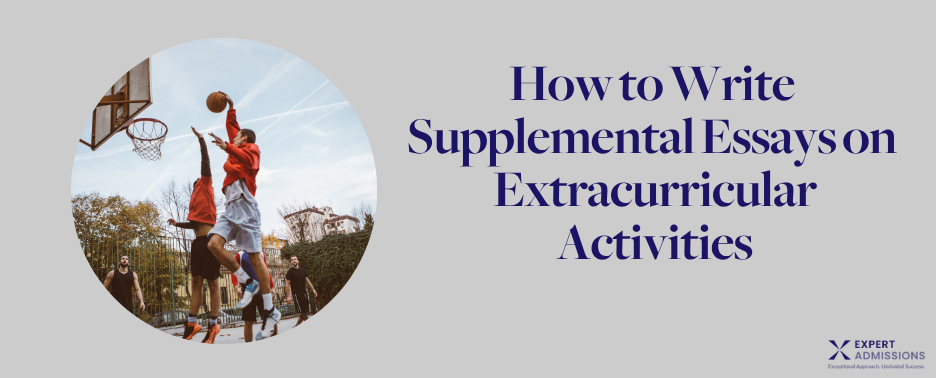
Supplemental essays where you elaborate on an activity give colleges an insight into who you are, the role you play in your community, and what is meaningful to you. By writing a response that focuses on the impact you have had in one of your extracurriculars, you can provide new information that can help committee members understand your fit for the school.
Take a look at some examples of supplemental essays on extracurricular activities below:
- Briefly discuss the significance to you of the school or summer activity in which you have been most involved. (approximately 1/2 page, single-spaced) – Georgetown University
- Please provide more details on your most meaningful commitment outside of the classroom while in high school and explain why it was meaningful. This could be related to an extracurricular activity, work, volunteering, an academic activity, family responsibility, or any other non-classroom activity. (250 words) – University of Florida
- “Strong commitment to the freedom of inquiry lies at the heart of Amherst College’s mission to create a home in which the liberal arts may flourish. As a small residential liberal arts college that prides itself on the ability, curiosity, and diversity of its students, Amherst seeks to create a respectful environment in which members of its community feel emboldened to pursue their intellectual and creative passions.” – from the Amherst College Statement of Academic and Expressive Freedom. Tell us about an intellectual or creative passion you have pursued; what did you learn about yourself through that pursuit? – Amherst College
As with any supplemental essay, start by reading the prompt thoroughly. Even though these questions are phrased similarly, they have different word limits. Amherst allows you to write a longer response than University of Florida. For extracurricular prompts with longer word limits, you should go into greater detail. Make sure you answer all parts of the question. Since a prompt like Amherst directly asks about an “intellectual or creative passion,” address that in your essay—how has the activity honed your academic or artistic abilities and interests? As part of a second half of the question, include beyond just what you did. What were your responsibilities? Did you gain any new skills? How have you applied those skills in other areas of your life?
Georgetown and University of Florida also mentioned that your topic should revolve around an activity where you are “most involved” or is “most meaningful” respectively. This phrase directs you to what any college with such a prompt wants to know: how do you spend a significant amount of time outside school and how have you made a difference in your community?
Choose your topic carefully. You don’t want to write about a club where you were a passive participant. Think about your biggest time commitments. Consider your interests and goals, as well as experiences that have been the most meaningful. You should choose an extracurricular that has allowed you to have a leadership role and make your mark on your community. Note that you don’t actually need a title like “President” or “Captain” to have taken on a leadership role; even if you’re a club member, you can demonstrate leadership by taking charge of a project or initiative. Finally, make sure you haven’t already gone into detail about your topic in your personal statement.
When writing essays about extracurricular activities, don’t just describe the activity and what it entails. Your essay should primarily focus on the impact you’ve made. No matter how the question is phrased, admissions officers want to know about your involvement rather than what everyone generally does in this club or organization.
Chances are, you’ve already mentioned this position in your activities list, resume, or both. So, use the space given by the supplemental essay to provide new information on who you are. What role did you play and what difference did you make? Did you solve any problems?
In reading your response, admissions officers want to be able to picture you on campus. Take advantage of the extracurricular prompt and allow them to gauge how you’d take advantage of the school’s resources and contribute to the college community.
Leave a Reply